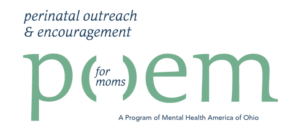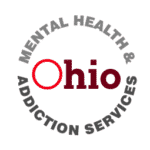
Yes, new parents – especially birthing parents – typically feel tired and overwhelmed. Most will experience some degree of the “baby blues”. But when these feelings don’t go away within a few weeks, you may require treatment/care.
Maternal mental health complications can occur any time during pregnancy through about the first year following childbirth. They can also occur after a pregnancy or infant loss. Symptoms can persist past one year postpartum, especially if they are not treated.
Not usually. These are real illnesses. And, like many illnesses, MMHCs almost never go away without treatment. The good news is that there are many treatments available that work. Once you reach out for help you are on your way to feeling like yourself again.
It’s different for everyone, but the sooner you begin treatment/care the sooner you will start to feel better. Some feel better within a few weeks, but others feel “not themselves” for many months. The important thing to remember is that maternal mental health complications are treatable. Help is available and with treatment and support, you can feel better.
Maternal Mental health complications are medical illnesses and have nothing to do with how fit or prepared you are for becoming a parent. Self-blame is a frequent symptom of MMHCs that can rob you of your confidence in your ability to parent. There is nothing that a person with an MMHC could have done to avoid the disorder.
RARELY. A common symptom of a maternal mental health complication is that a person may have frightening thoughts about harm coming to their infant or children. People with this symptom are usually very ashamed and feel horrible about the thoughts. Learn more about scary thoughts here.
Postpartum Psychosis is a rare illness compared to the rates of postpartum depression or anxiety. It occurs in approximately 1 to 2 out of every 1,000 deliveries, or approximately .1% of births. The onset is usually sudden, most often within the first 2 weeks postpartum. Learn more about postpartum psychosis here.
If you have thoughts about harming yourself or others, connect with trained crisis support or go to your closest emergency room for help right away.
Crisis supports:
988 – 24/7 call, text and chat access to trained crisis counselors who can help people experiencing suicidal, substance use, and/or mental health crisis, or any other kind of emotional distress
1-833-9HELPFORMOMS Maternal Mental Health Hotline
National Crisis Text Line at 741-741
No. Being pregnant is not a guarantee against developing depression or other mental health complications. In fact, studies show that birthing parents are most likely to experience depression during their childbearing years than at any other point in their lifetime.
What kinds of supports and treatments help with maternal mental health complications? Some options include:
- Specialized counseling or psychotherapy
- Support groups and peer support
- Medications
- Assistance with childcare and other basic needs
- Practicing self-care
It’s important to talk to a trusted and qualified care provider about any medication you take when pregnant or breastfeeding. Studies show the antidepressants most likely to be prescribed for a maternal mental health complication often pose a very small risk to breastfed babies. POEM can help link you to resources available to help you with this decision.
Contact POEM for additional support and guidance, as well as consult a trusted and qualified health care professional for a full assessment.
Contact POEM
If you are looking for resources in your area or just need to talk to another mom or birthing person who understands, our mom-to-mom support line is available Monday-Friday during regular business hours.







